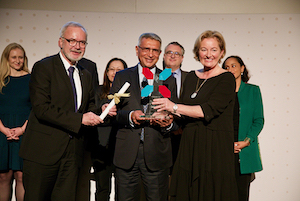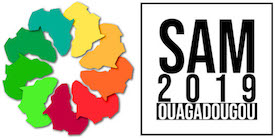During Thursday’s “Risky Business” session at European Microfinance Week, Patricia Richter of the UN’s International Labour Organization (ILO) led the audience through a poll of audience members’ personal work histories and how they think microfinance institutions (MFIs) can help reduce child labor. The audience voted that MFIs should do more to “raise awareness among clients and households” about the issue. The ILO’s Minimum Age Convention of 1973, which has been ratified by 172 countries, specifies the youngest acceptable ages for various types of work, ranging from 12 years old for fewer hours of light work in developing countries to 18 years old for hazardous work in any country.
Thursday’s “Risky Business” session at European Microfinance Week, Patricia Richter of the UN’s International Labour Organization (ILO) led the audience through a poll of audience members’ personal work histories and how they think microfinance institutions (MFIs) can help reduce child labor. The audience voted that MFIs should do more to “raise awareness among clients and households” about the issue. The ILO’s Minimum Age Convention of 1973, which has been ratified by 172 countries, specifies the youngest acceptable ages for various types of work, ranging from 12 years old for fewer hours of light work in developing countries to 18 years old for hazardous work in any country.
The motivations for adults to engage children in age-inappropriate work include: (1) the family’s need for more income; (2) social norms that encourage child labor or the passing down of skills from parents to young children; (3) insufficient educational opportunities; (4) market demand for


